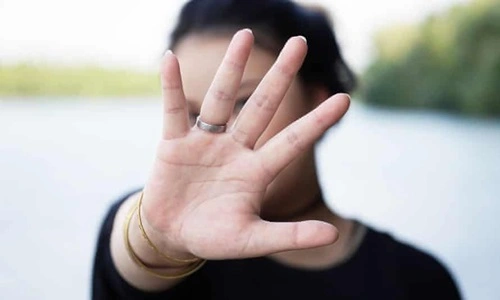Yes, posting pictures of someone without their consent is illegal in India. Several laws protect individuals’ privacy and dignity, ensuring that unauthorized use or distribution of their pictures can lead to civil and criminal penalties.
Legal Framework for Posting Pictures Without Consent

The right to privacy and protection from unauthorized use of personal images are recognized under Indian laws. The following legal provisions address this issue:
1. Right to Privacy
The Right to Privacy is a fundamental right guaranteed under Article 21 of the Constitution of India. In the landmark case of Justice K.S. Puttaswamy v. Union of India (2017), the Supreme Court of India declared privacy a fundamental right, which includes the right to control the dissemination of personal images or information.
2. Information Technology Act, 2000
The IT Act has specific provisions for addressing issues related to the unauthorized posting of pictures online:
- Section 66E: Punishment for Violation of Privacy
- Capturing, publishing, or transmitting a person’s private image without their consent is punishable.
- Penalty: Imprisonment up to 3 years, a fine up to ₹2 lakh, or both.
- Section 67: Publishing or Transmitting Obscene Material
- Posting obscene or sexually explicit pictures without consent can lead to severe penalties.
- Penalty: Imprisonment up to 5 years and a fine up to ₹10 lakh for the first conviction.
- Section 67A: Transmitting Sexually Explicit Content
- This section applies to the unauthorized posting of sexually explicit content and carries even harsher penalties.
3. Indian Penal Code (IPC), 1860
Several provisions of the IPC are applicable for posting pictures without consent:
- Section 354C (Voyeurism):
- Taking or posting pictures of someone in private settings (e.g., their home or a changing room) without consent is punishable.
- Penalty: Imprisonment of 1 to 3 years for the first conviction and up to 7 years for subsequent convictions.
- Section 509: Insulting the Modesty of a Woman
- Posting pictures intended to insult a woman’s modesty can lead to imprisonment for up to 3 years and a fine.
- Section 500 (Defamation):
- Posting someone’s pictures without their consent in a way that harms their reputation constitutes defamation.
- Penalty: Imprisonment up to 2 years, a fine, or both.
- Section 292: Obscene Material
- Posting obscene images online or in public places can result in imprisonment of up to 2 years and fines.
4. Protection of Women
- The Protection of Women from Domestic Violence Act, 2005:
- In cases where unauthorized images are posted by a spouse or family member, this Act provides legal recourse for women to seek protection and compensation.
- The Sexual Harassment of Women at Workplace Act, 2013:
- If images are shared without consent in a workplace context, this Act provides remedies and penalties for the offender.
Remedies Available to Victims
If your pictures are posted without your consent, you can take the following actions:
- File a Police Complaint:
- Report the incident to your nearest cybercrime cell or local police station. Provide evidence, such as screenshots or URLs.
- Approach the Court:
- File a civil suit for damages or an injunction to prevent further circulation of the images.
- Report to Social Media Platforms:
- Platforms like Facebook, Instagram, and Twitter allow users to report unauthorized or abusive content for removal under their community guidelines.
- Contact Cyber Cells:
- Reach out to the National Cyber Crime Reporting Portal (www.cybercrime.gov.in) to lodge a complaint online.
Penalties for Violators
- Criminal Penalties:
- Depending on the offense, violators may face imprisonment ranging from 2 to 7 years and fines up to ₹10 lakh.
- Civil Penalties:
- Victims can claim compensation for emotional distress, loss of reputation, and financial damages caused by the unauthorized use of their pictures.
Recent Legal Developments
- Focus on Digital Safety:
- With the rise of cybercrime, Indian courts and the government are increasingly emphasizing stricter enforcement of privacy laws.
- Social Media Accountability:
- Social media platforms are required to remove objectionable content under the Information Technology (Intermediary Guidelines and Digital Media Ethics Code) Rules, 2021.
Conclusion
Posting pictures of someone without their consent is a violation of their privacy and can attract severe legal consequences under Indian law. Victims are empowered to seek justice through criminal complaints, civil suits, and digital reporting mechanisms. Awareness and prompt legal action are key to addressing such violations effectively.
Hina Abbasi is Editor and a passionate sports and entertainment content writer at WinnersMaze.com. Hina’s expertise spans across a wide range of sports, and interest in many TV shows allowing her to deliver insightful analysis and compelling stories that resonate with readers.

